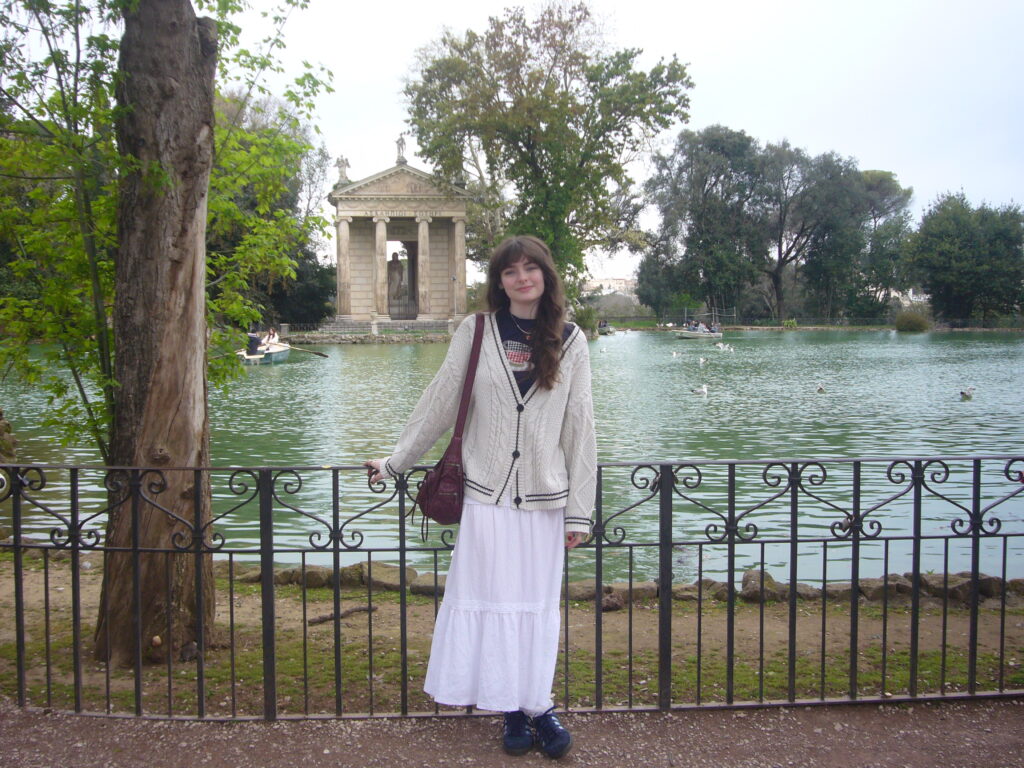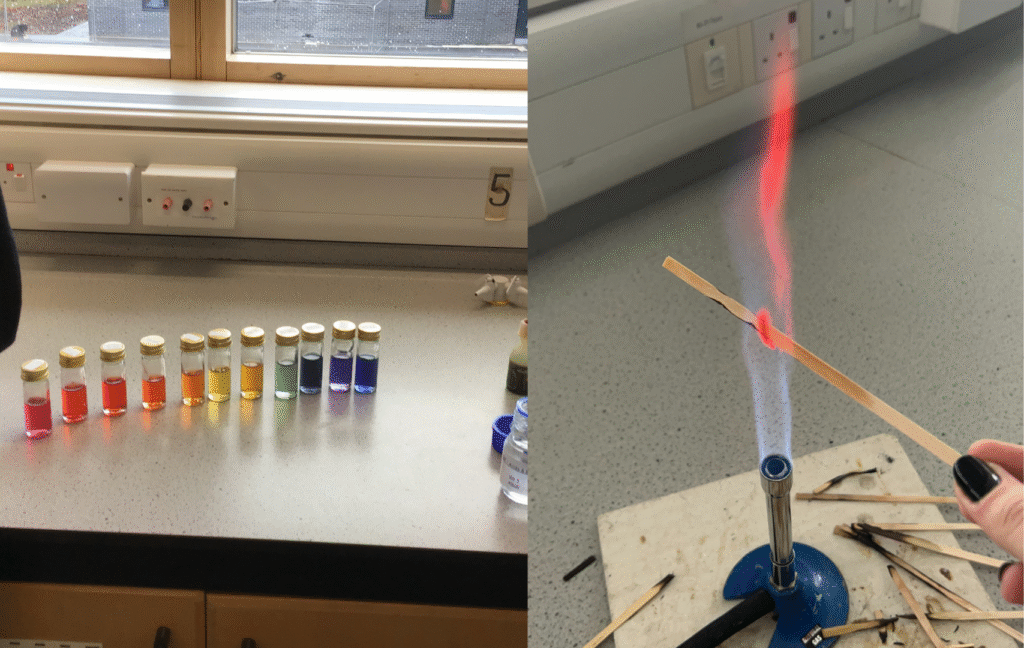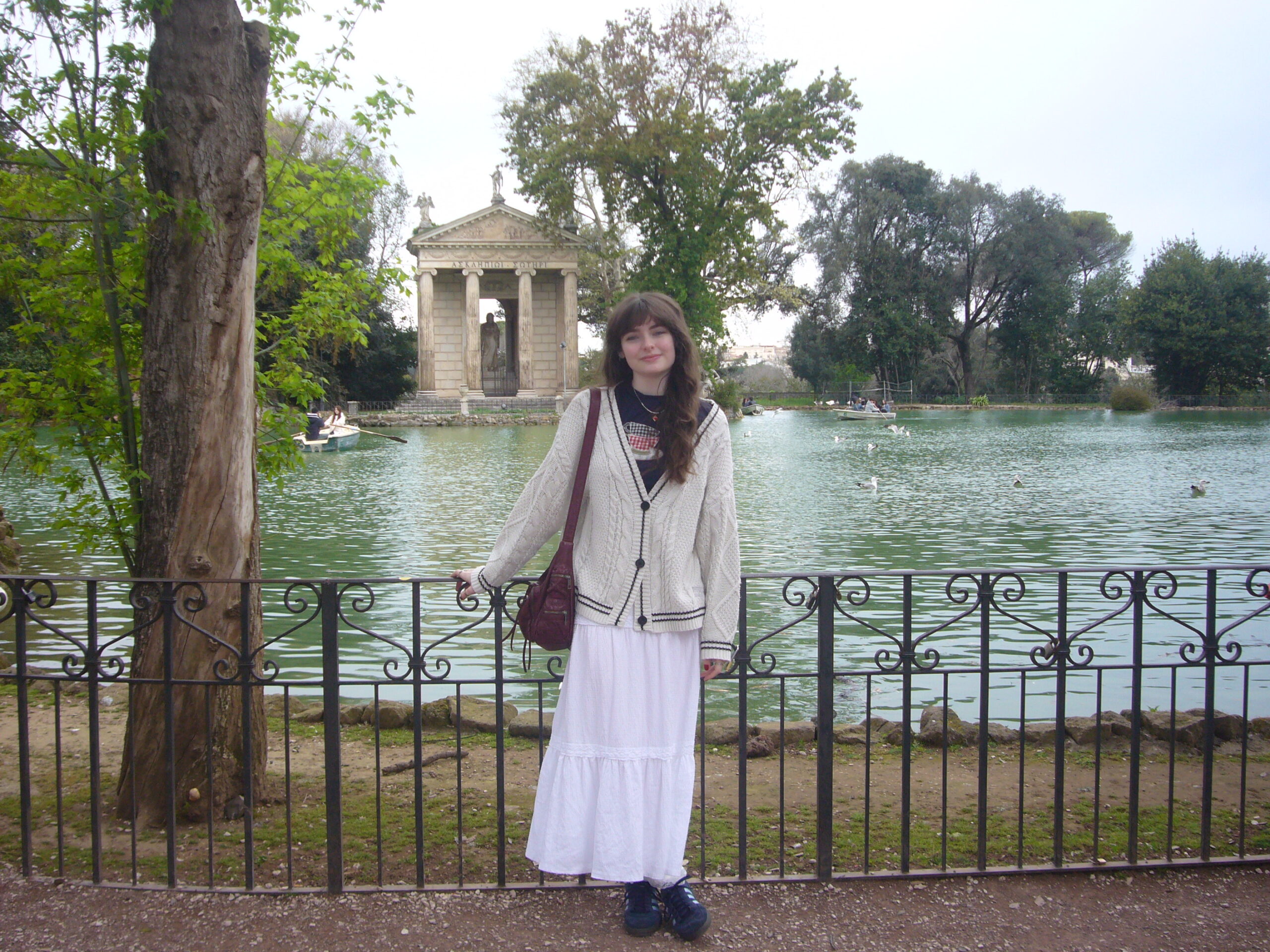
About me
Hi, my name is Mirin Smith and I am just about to start the third year of my chemistry degree at the University of Glasgow. For as long as I can remember, I have always known that I wanted to be a scientist. From the crazy ‘potions’ I’d make as a child, to the cakes and desserts I whipped up on the weekend where I would accurately weigh ingredients and methodically mix them together into a pretty cake. I often experimented with my recipes too – changing the ratios of ingredients ever so slightly, or mixing the ingredients in a different order just to see the outcome. And so it was no surprise that chemistry ended up being my favourite subject in school. Learning that I could mix things together for a living and do experiments everyday sounded like the perfect job to me!

Throughout high school, I also developed a great interest in maths, and fortunately for the past two years of university I have been able to study both maths and chemistry and finally decide that chemistry is the degree for me. My passion for maths has certainly influenced my favourite branches of chemistry and this past year I have enjoyed classes in quantum mechanics, thermodynamics and electrochemistry. That is why when it came time to look for a summer placement, I knew I wanted to work somewhere outside of the typical chemistry wet lab and try something that was out of my comfort zone.

Finding an internship
As luck would have it, one day when scrolling on Instagram, I saw a post by UofGstem doing a spotlight on research. The spotlight was on Dr. Hessam Mehr, and after watching the video and learning about his branch of research — digital chemistry — I knew I had to reach out. I had previously noticed that Dr. Mehr had summer positions open for international students and figured it was worth a shot to shoot him an email. I heard back instantly, and a few days later after a quick meeting and lab tour we decided on my start date and I got to thinking about potential projects.
An introduction to research
After a fun few weeks off once my exams were over, it was time to start my 8-week internship. I was eager to get started but also pretty nervous. Stepping into a new position in a new place can be daunting, but fortunately, I spent my first 3 weeks shadowing a Masters student, Kyriaki Vergitsi. Working alongside Kyriaki for my first few weeks helped me ease into the internship and allowed me to get comfortable working in the lab and get to know everyone. I observed Kyriaki’s experiments as she studied the acetylation of erythromycin, and learned how to analyse data from the mass spectrometry machine we were using. This was super interesting as I had previously studied mass spectrometry in my second year so it was nice connecting my knowledge to a real life example.
The reactor I have been working with is very interesting and unlike anything I have seen in the past. The whole set up is controlled via Python, a programming language that previously, I had very little experience with, but now I have a solid grasp on. Going into this internship, my coding skills are something I knew I wanted to improve on as I think being able to code is an invaluable skill that will help me tremendously in the future. Even though my project so far has not involved any coding, I have picked up so much from observing and reading code written by other group members in the past. I have also been learning Python independently on the side which has certainly helped. This is a skill I will continue to learn and hopefully put into action in the future.

My problem solving skills were put to use when there was an unexpected issue with Kyriaki’s experiment. The ion intensities going into the mass spec were lower than expected. As a team we tried new tubing, tested the gas pressure while closing off different entrances into the reactor, and eventually deduced that the 3D printed lid was not fully sealed and therefore gas was escaping from there. I had the chance to make a new lid for the reactor and got to drill and work on my soldering skills. This will definitely come in handy when I’m working in labs in the future.

Alongside coding and soldering, I have also been working on my CAD skills over the past few weeks, and got the chance to design a mould to hold glass slides during a reaction. After a few back and forths on the design, I settled on a simple mould that a standard glass slide would fit into, with holes at the bottom to easily push out the slide. I then used a laser cuter to cut out the base and the side walls and glued these together. Despite being a relatively simple design, it was satisfying to start from a blank document on OnShape and create something I could physically hold.

Expectations vs reality
The biggest thing I’ve learnt during my internship so far has been that it is okay to feel lost and maybe not know exactly what you’re doing. In fact, it’s normal. What is important, is that you reach out and get advice. Working alongside professionals, I previously thought that I shouldn’t ask for help, either because they were too busy and I didn’t want to disturb them, or because I thought they would be inconvenienced. But that is completely not the case. As the weeks have gone on, I have noticed just how much teamwork is involved in research, and how important it is to discuss things with your peers and listen to their perspective on things. In the lab, even though everyone is working on their own thing, there is still so much collaboration happening at all times.
Research as an undergrad
Before starting university, research wasn’t something I saw myself doing until after I had finished my degree, and as someone with no prior connections to the research world, I had no idea about the opportunities out there for undergraduate students. It wasn’t until I heard that a few of my classmates had secured a summer internship that I started looking myself. Thankfully, Dr. Mehr was eager to have as many interns as possible, and I am grateful for getting this placement, despite emailing later on in the year.
I feel very grateful to have been given this opportunity to work in a professional environment and grow as a scientist. Over the past eight weeks I have learned so much about the work culture in a research lab, the trials and errors that researchers must overcome on a daily basis, and have felt a huge shift in my perspective regarding working in academia. My confidence has grown and I have had space to think more creatively as well as the independence to be curious and learn on my own. I have met so many wonderful people and watched as a team of scientists from all different backgrounds can come together and work on something magnificent. This internship was my first taster into the world of research, and I am super excited to continue on my journey as a chemist in the future!


Leave a Reply
You must be logged in to post a comment.